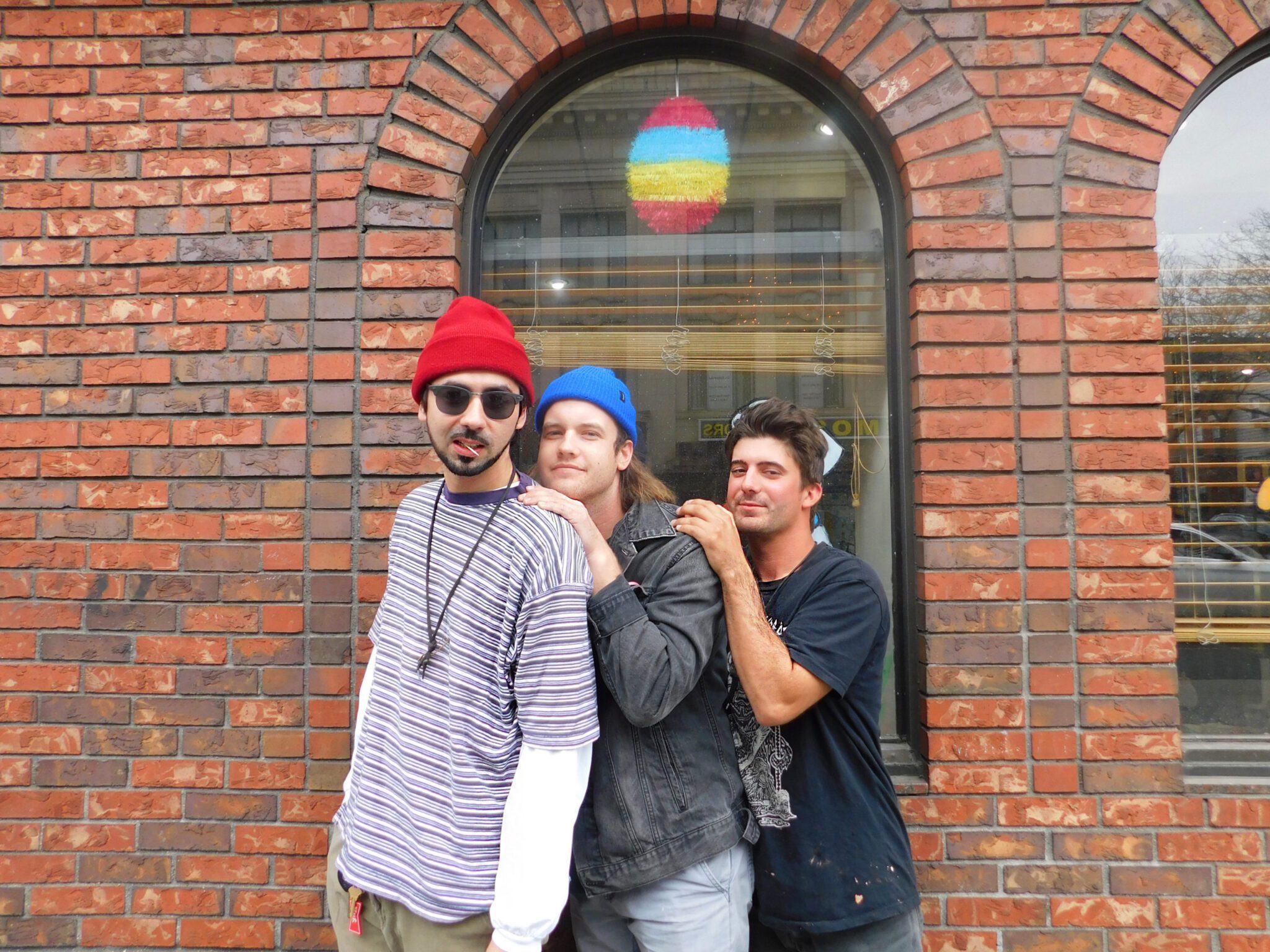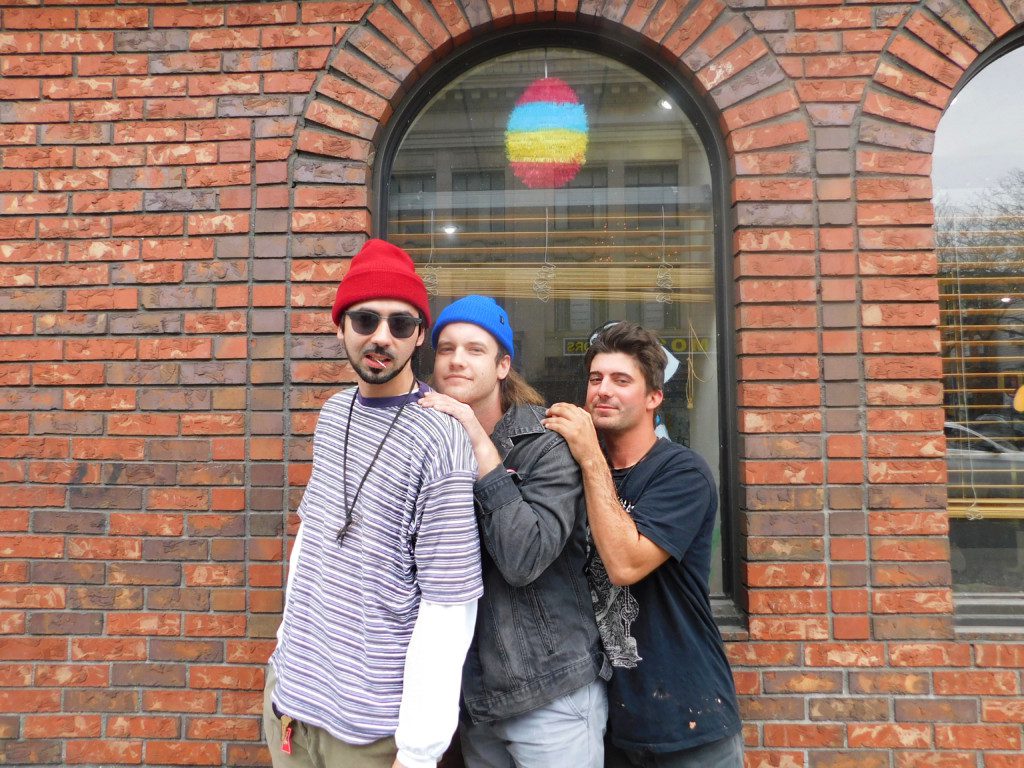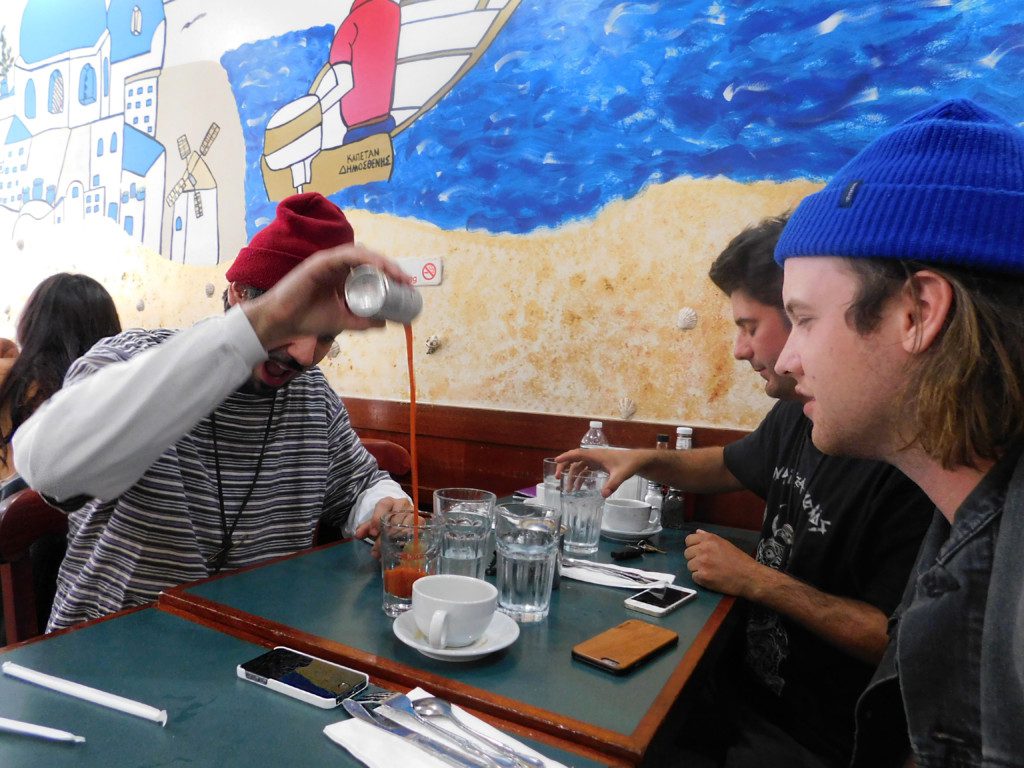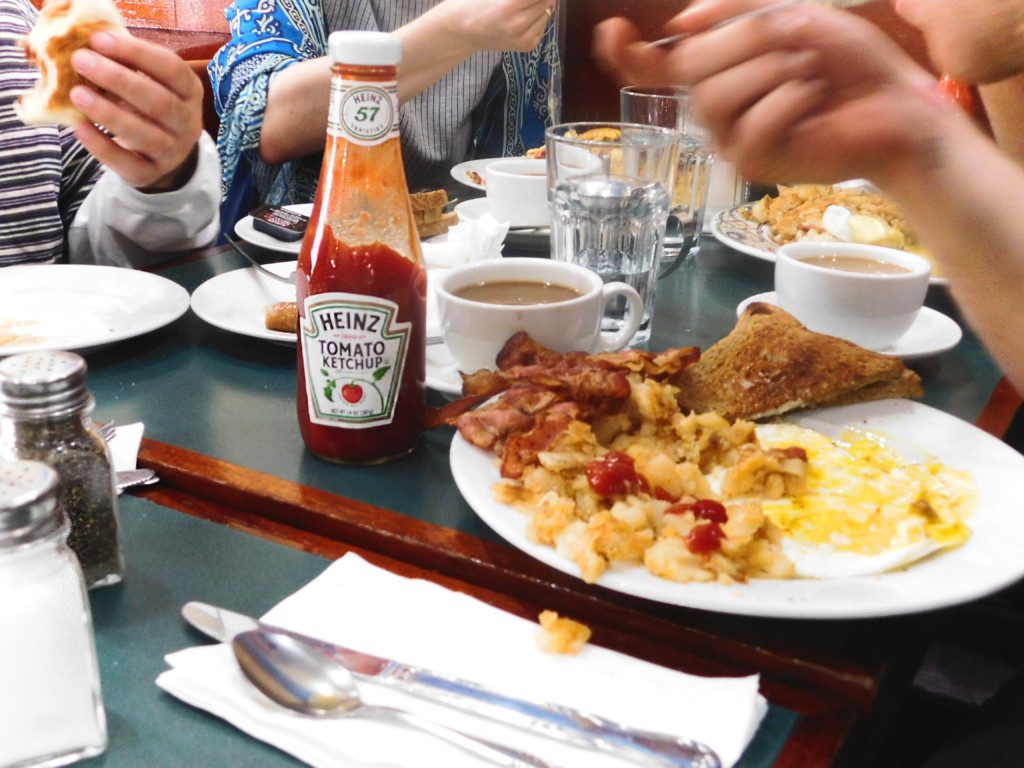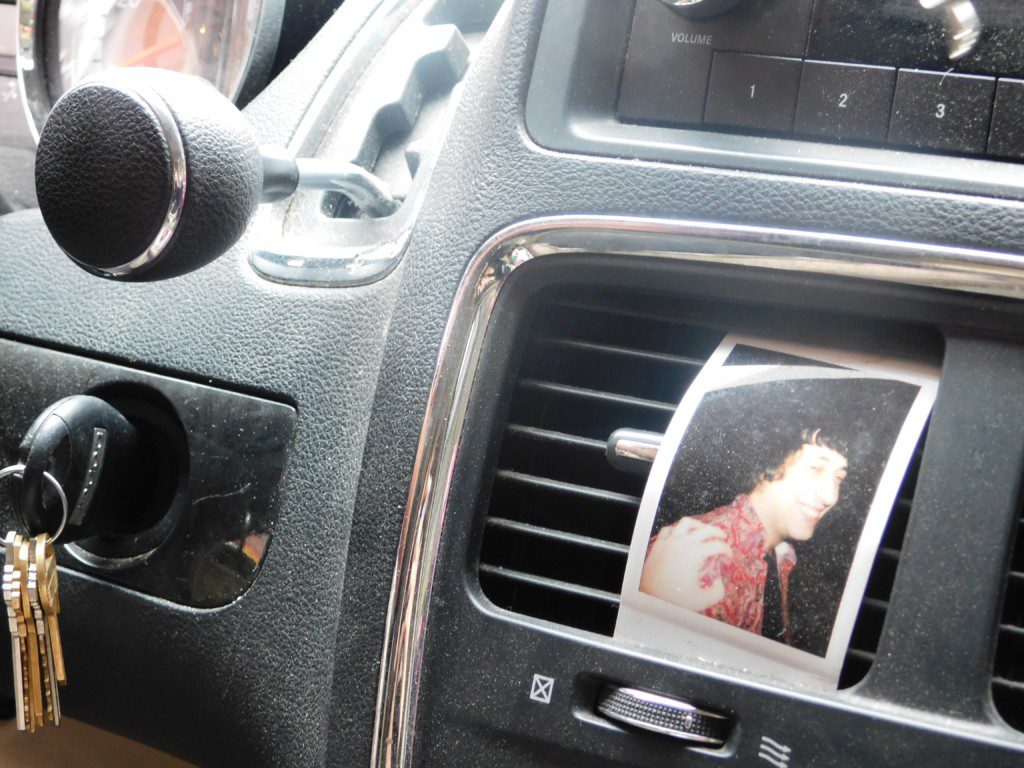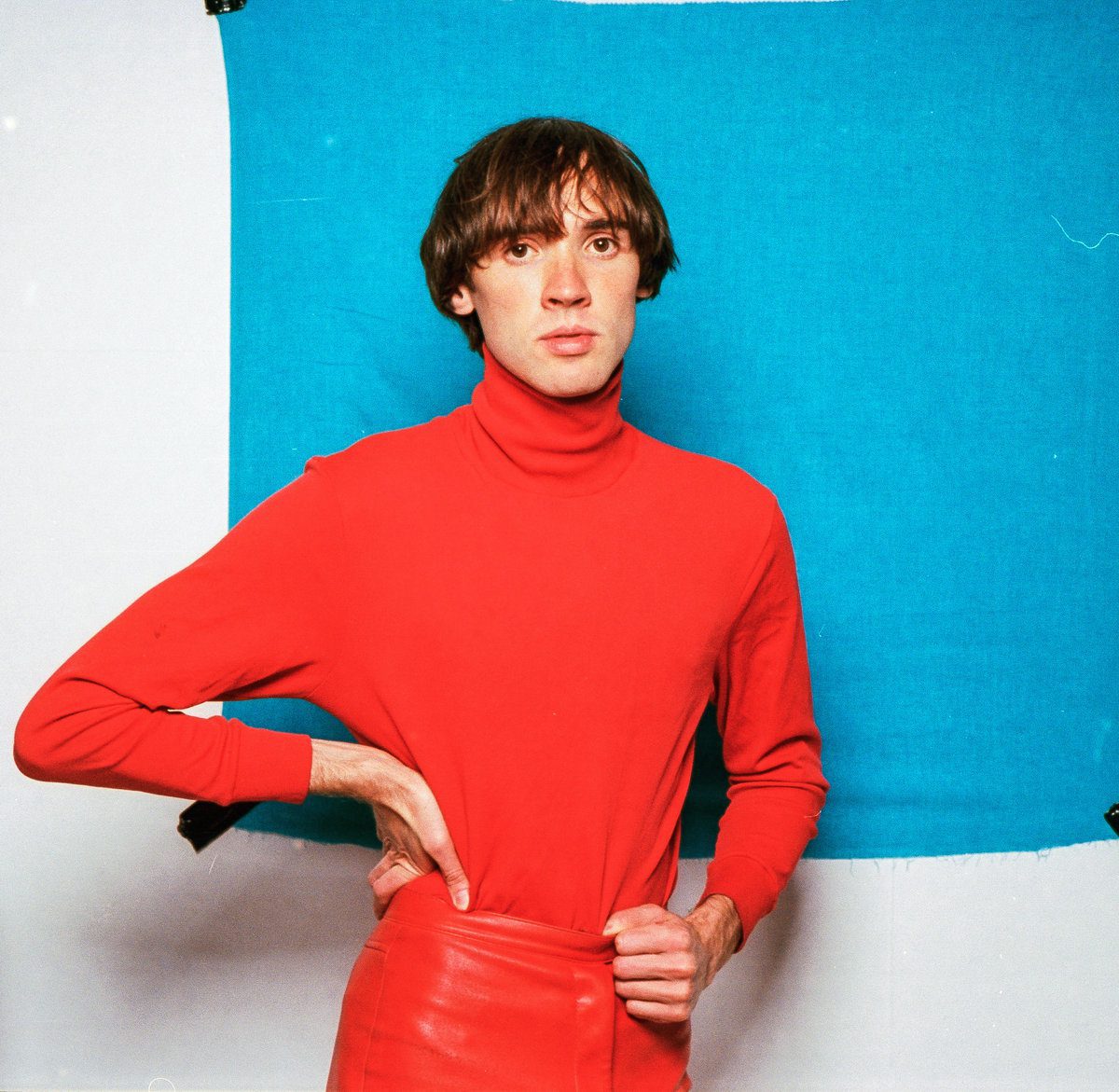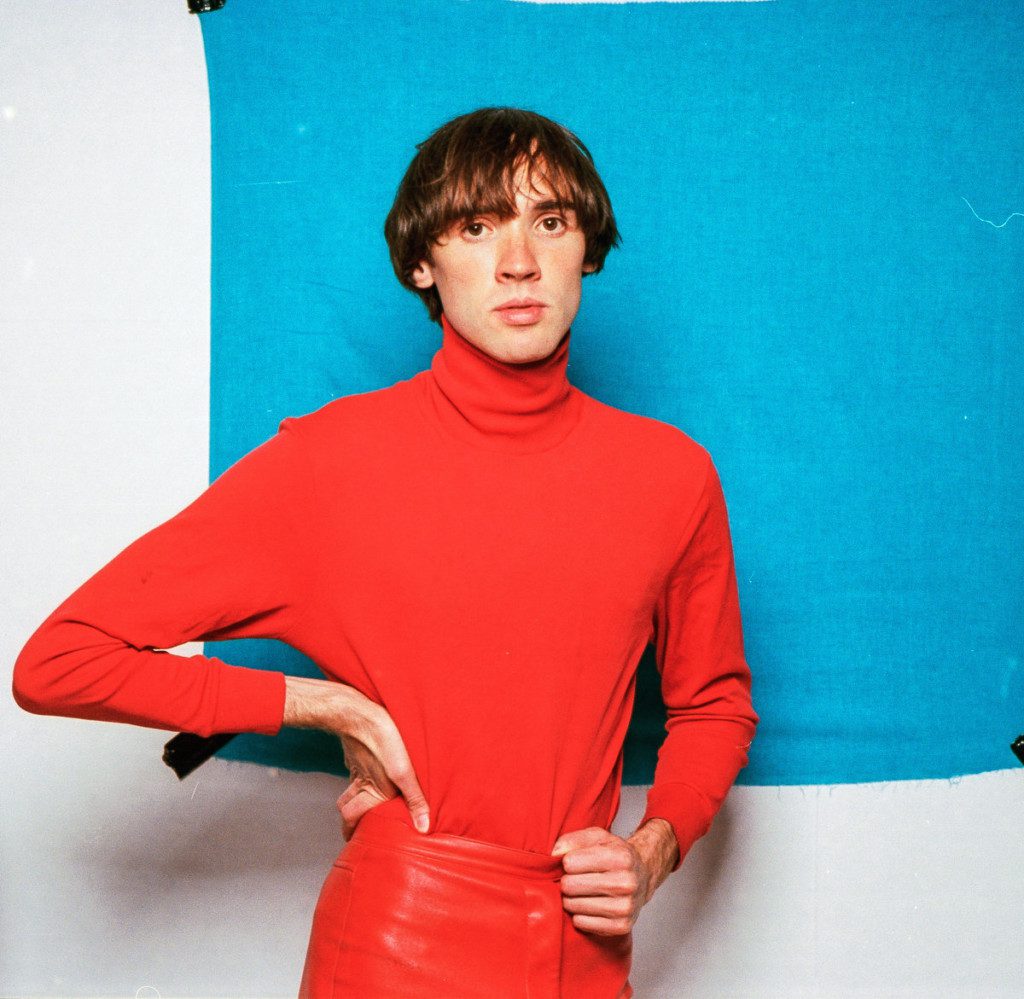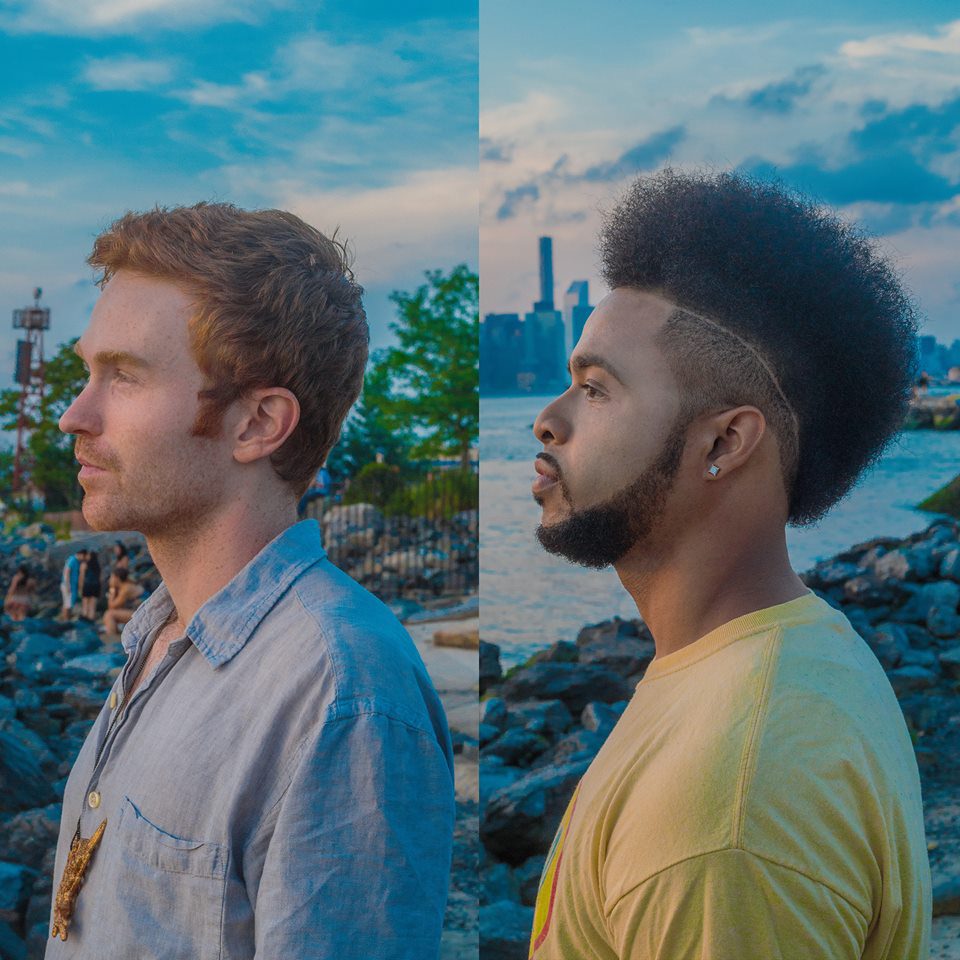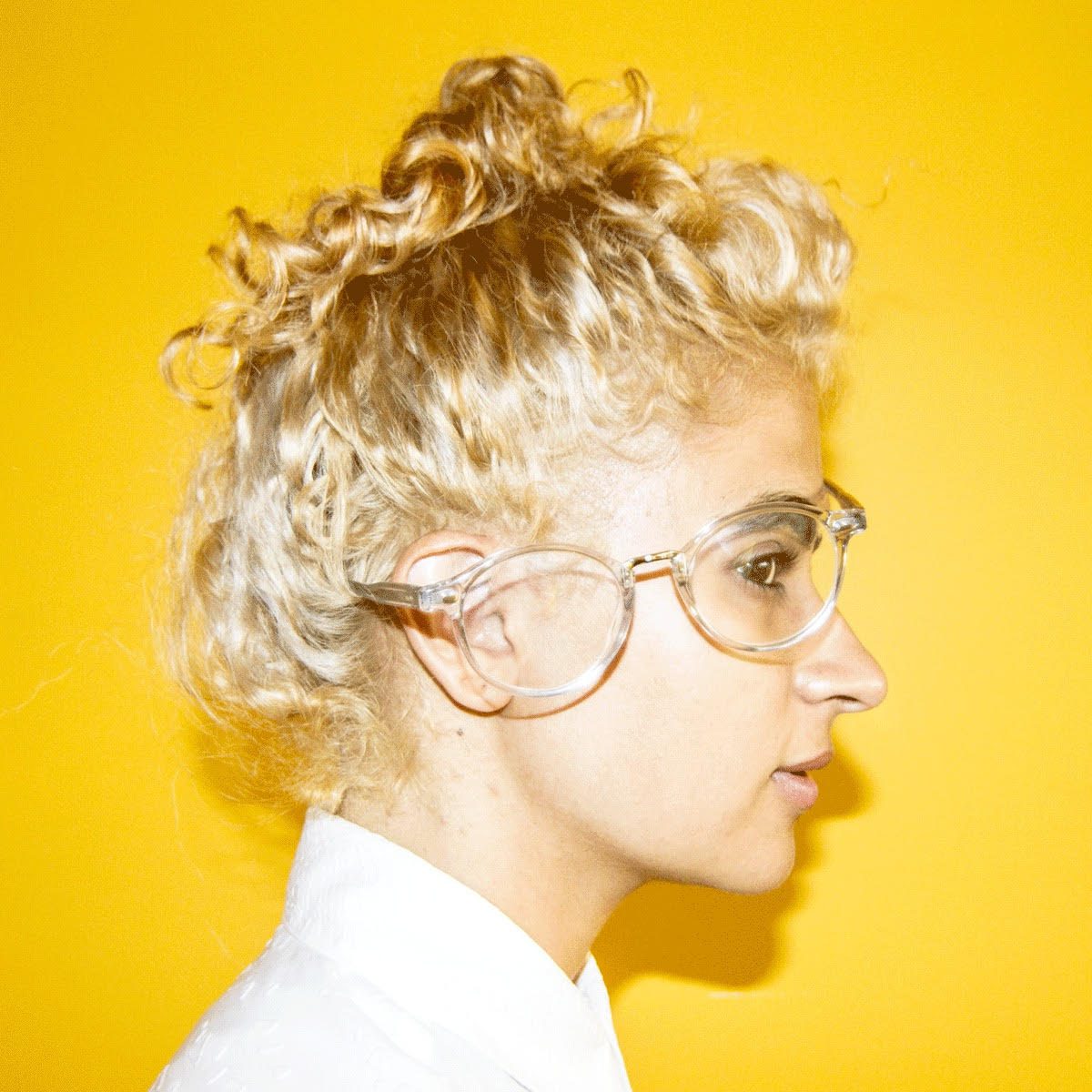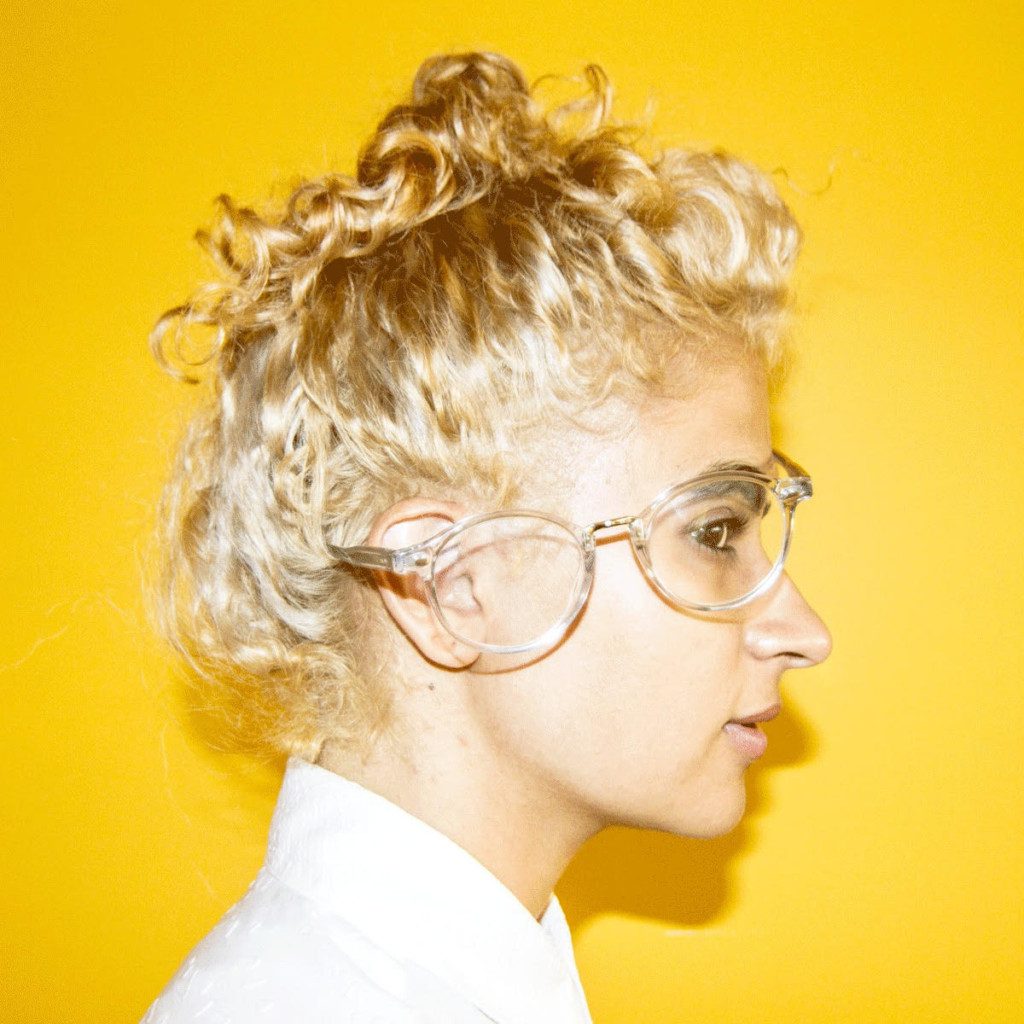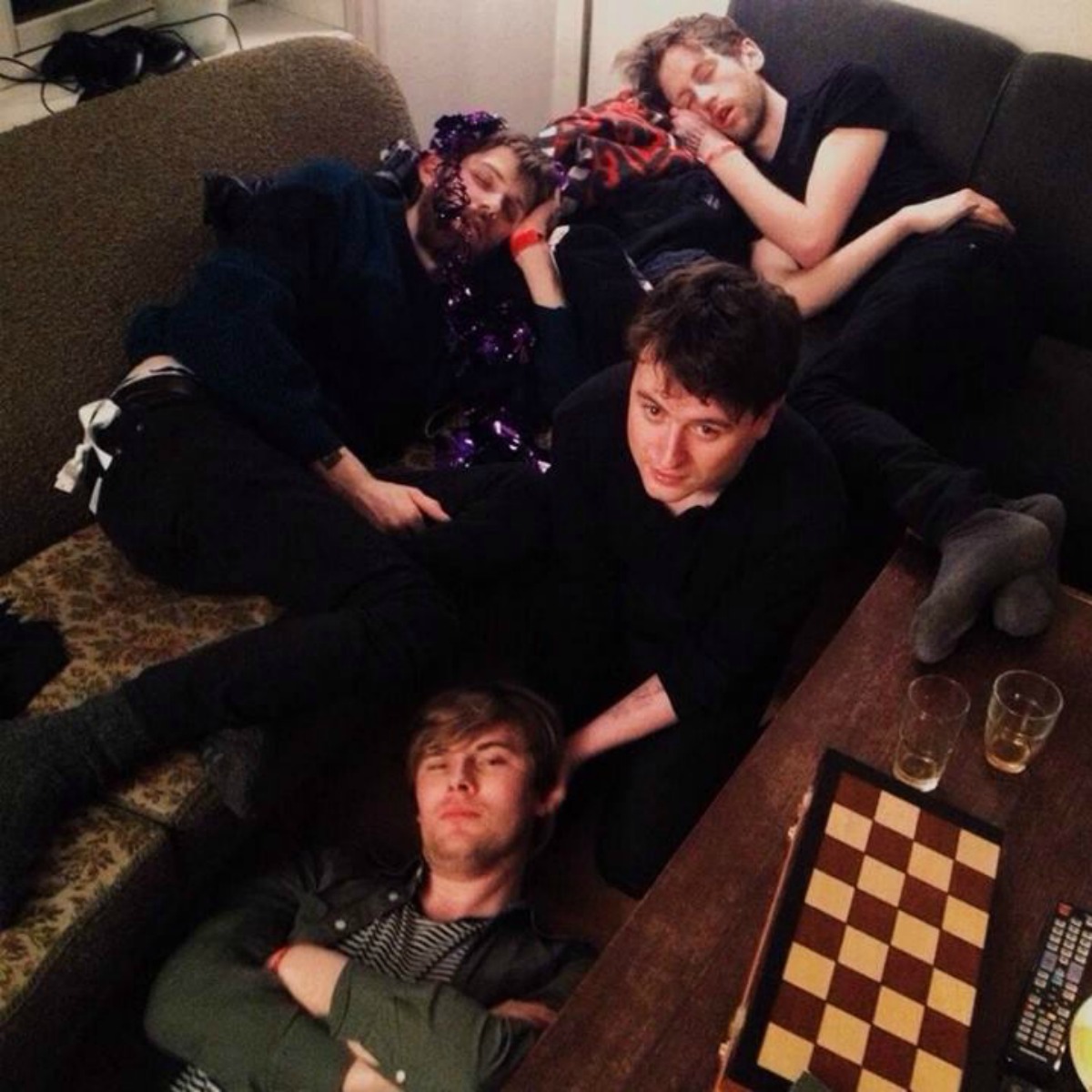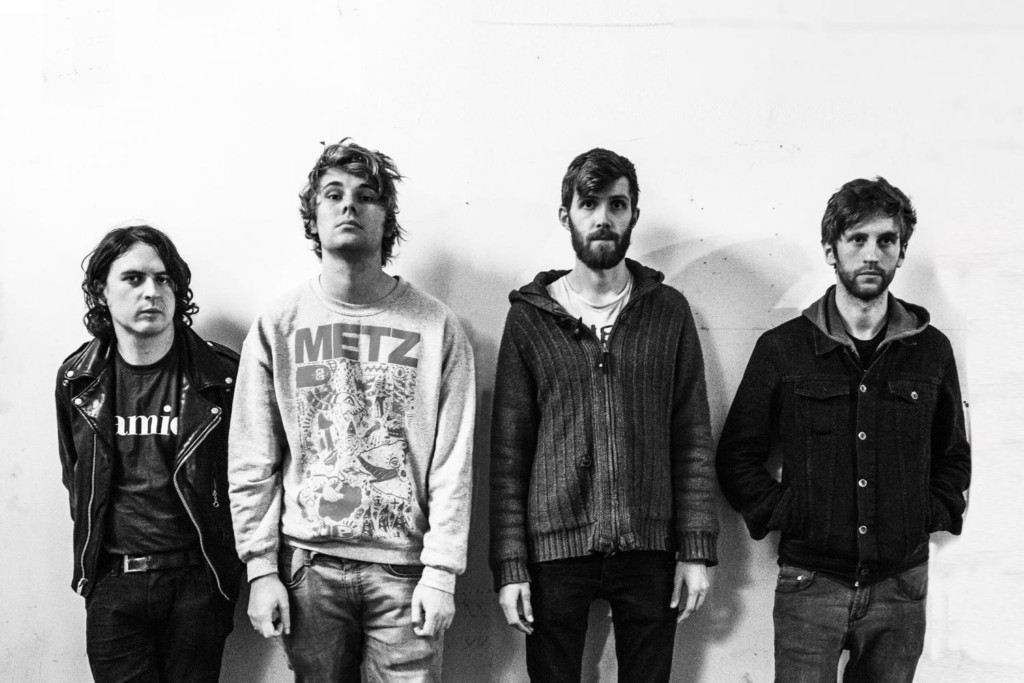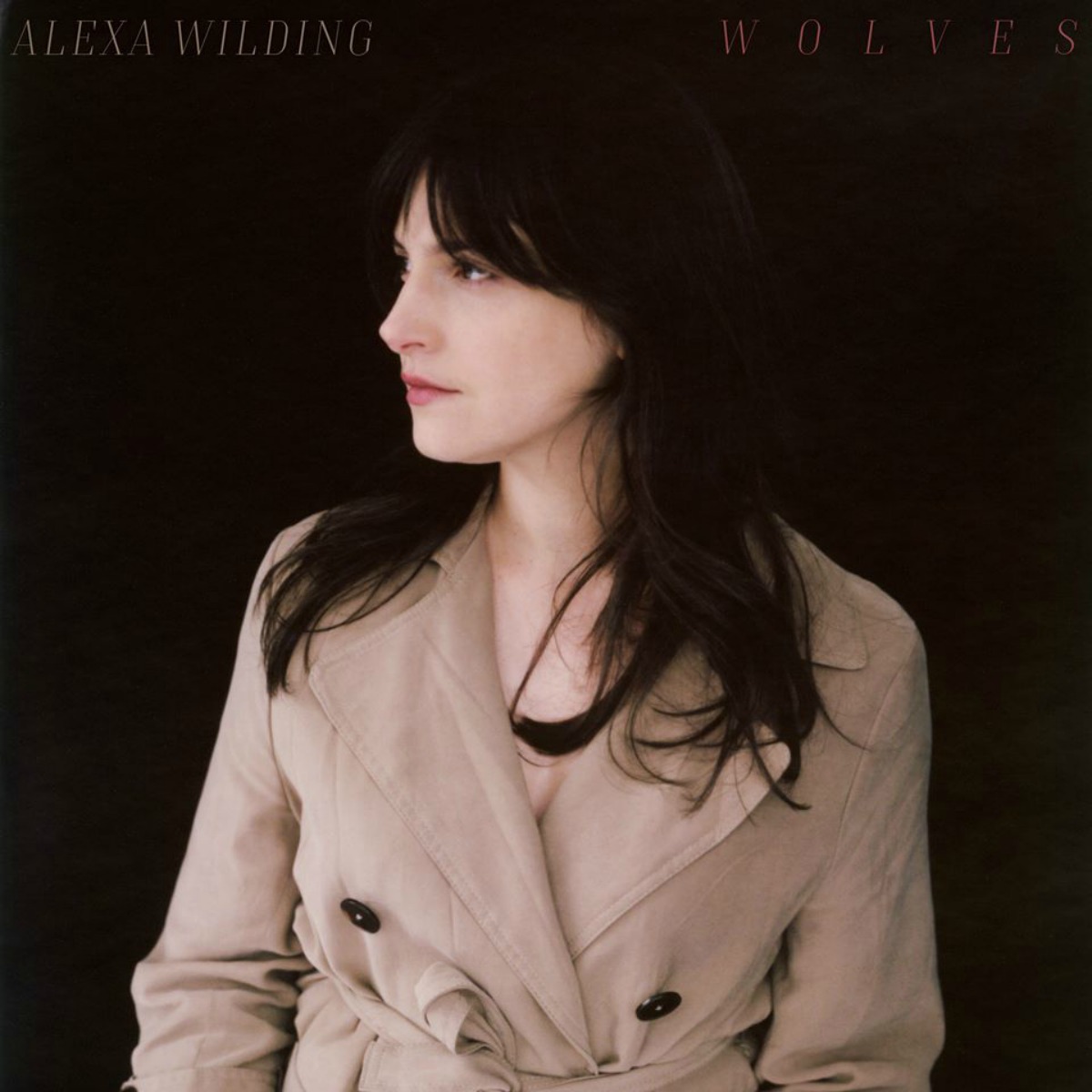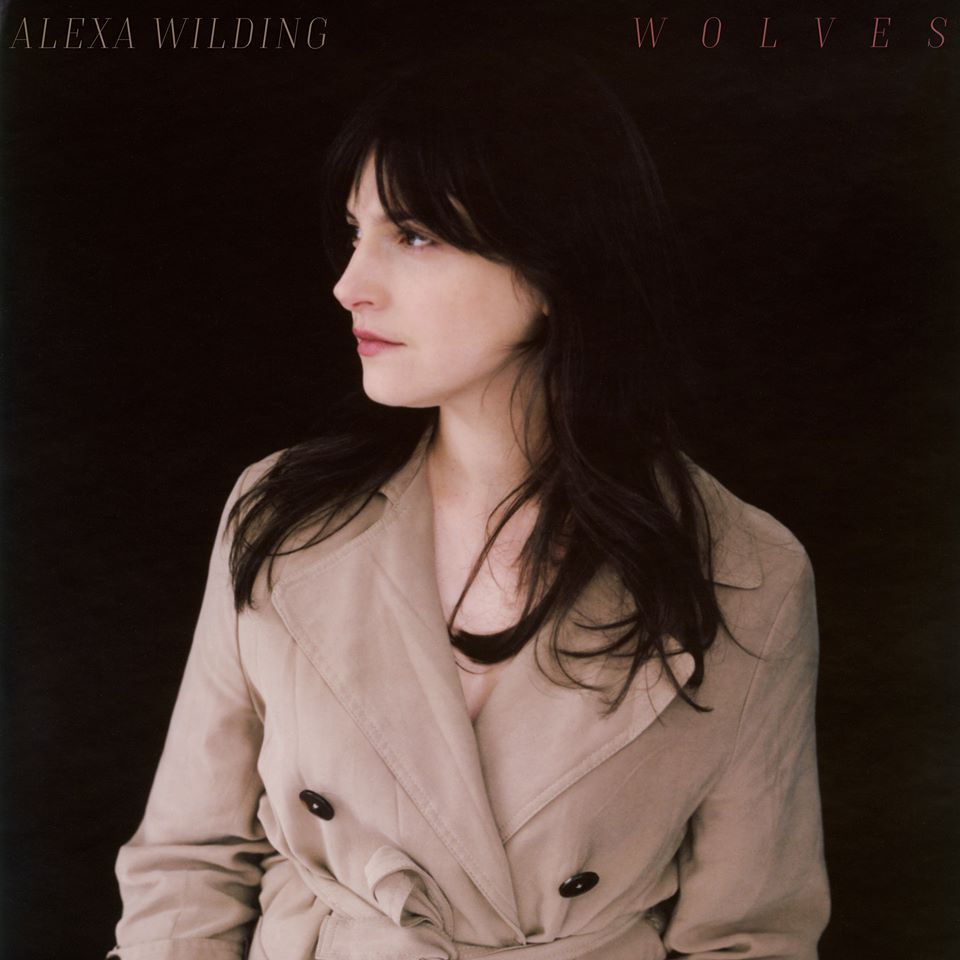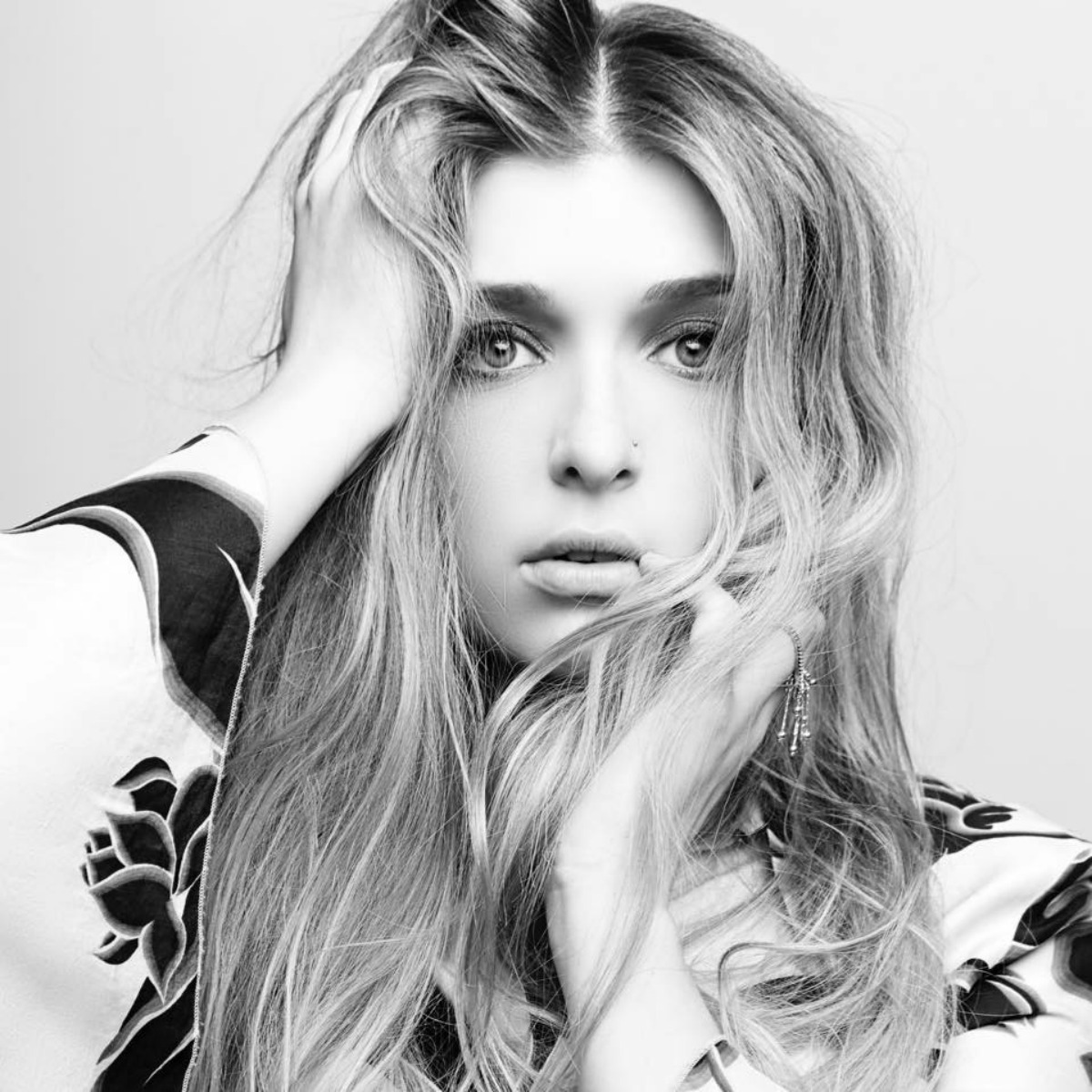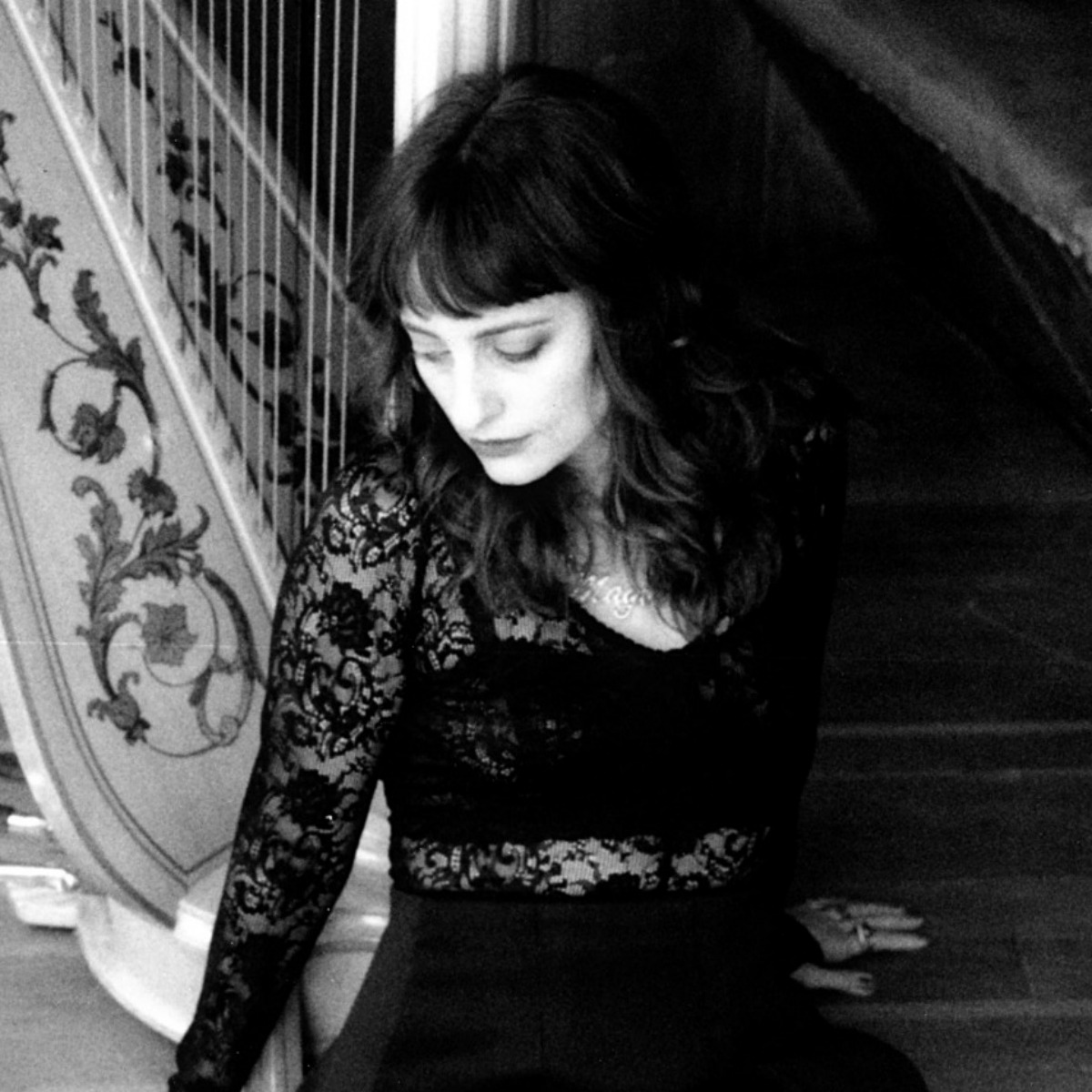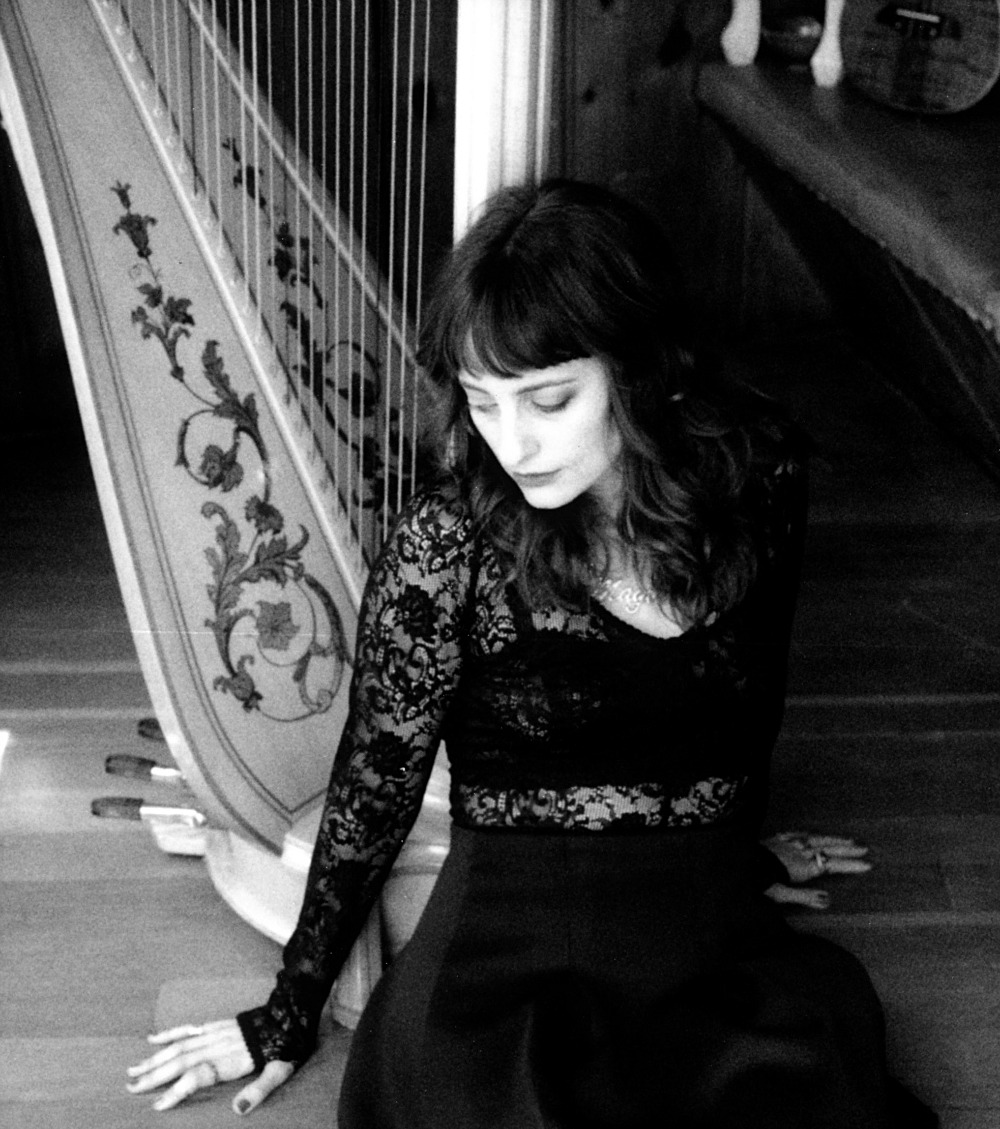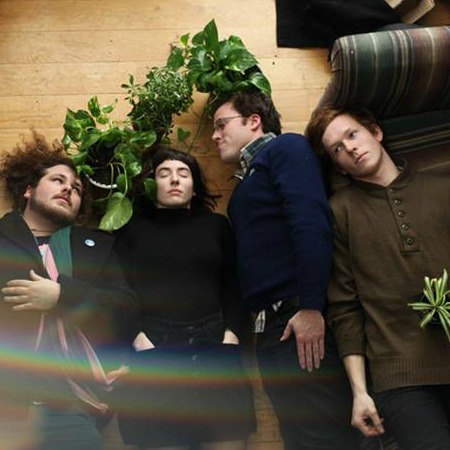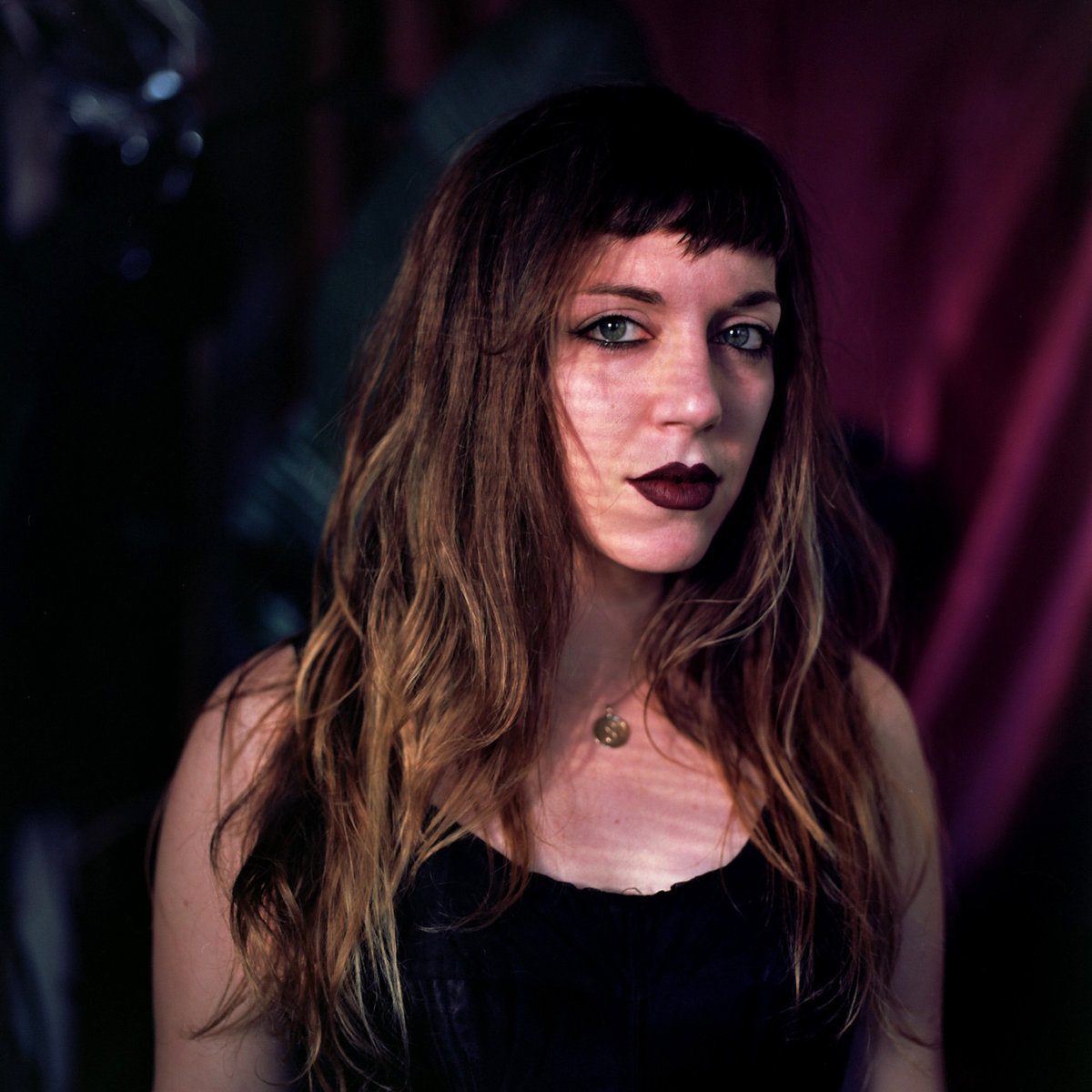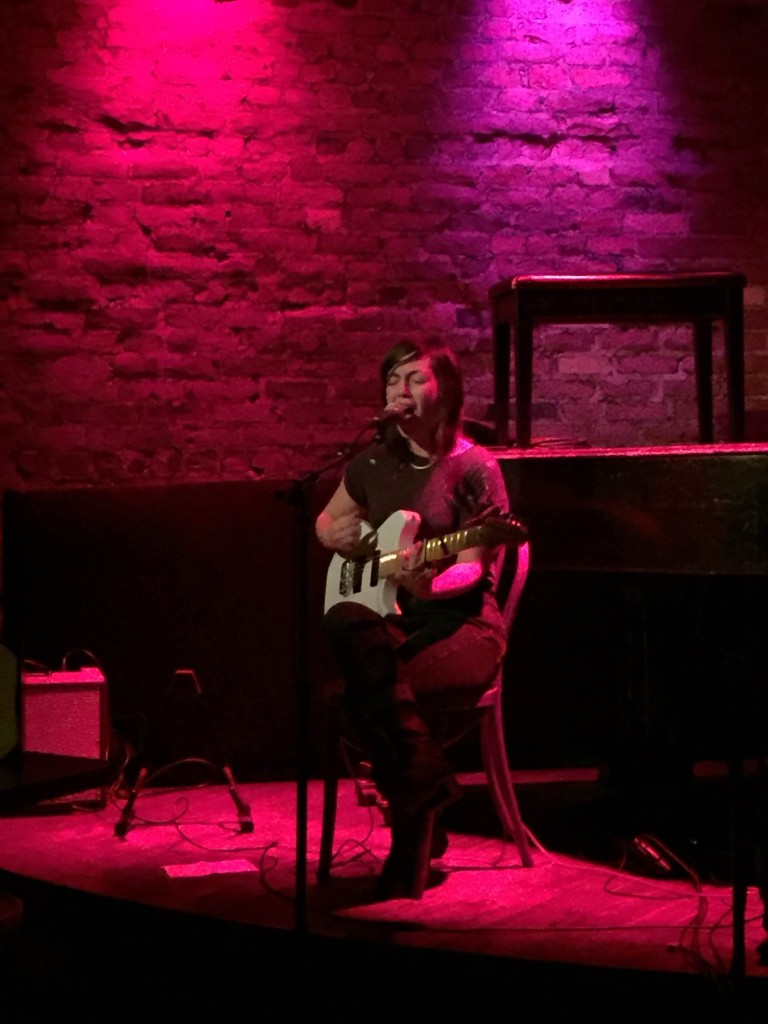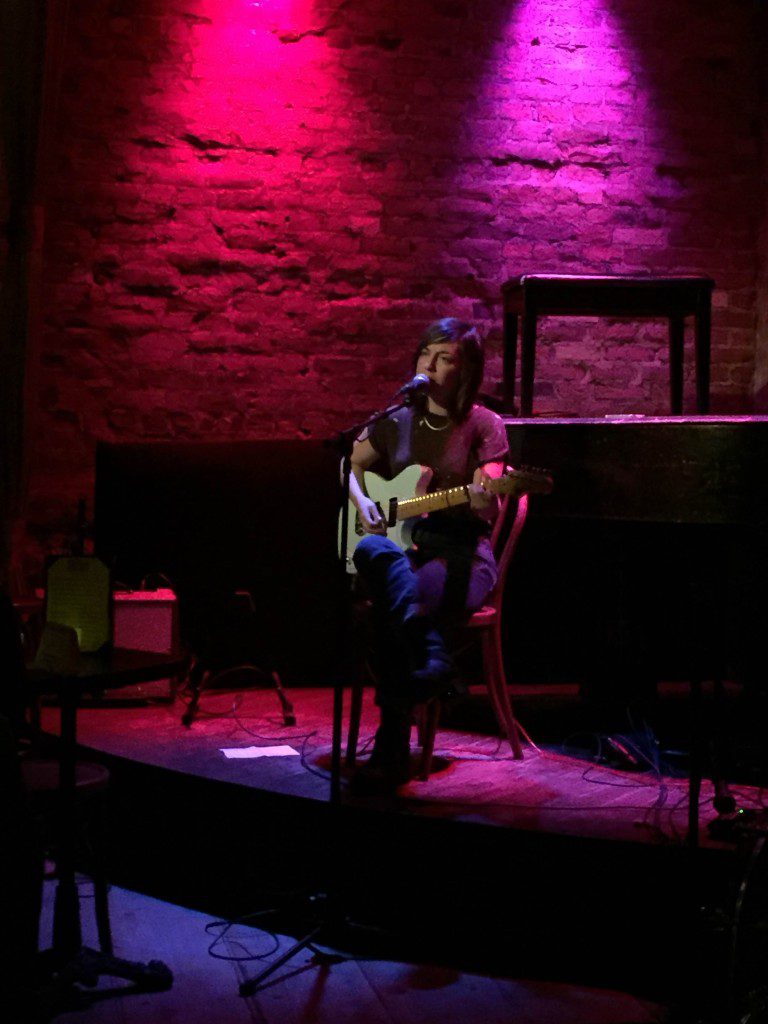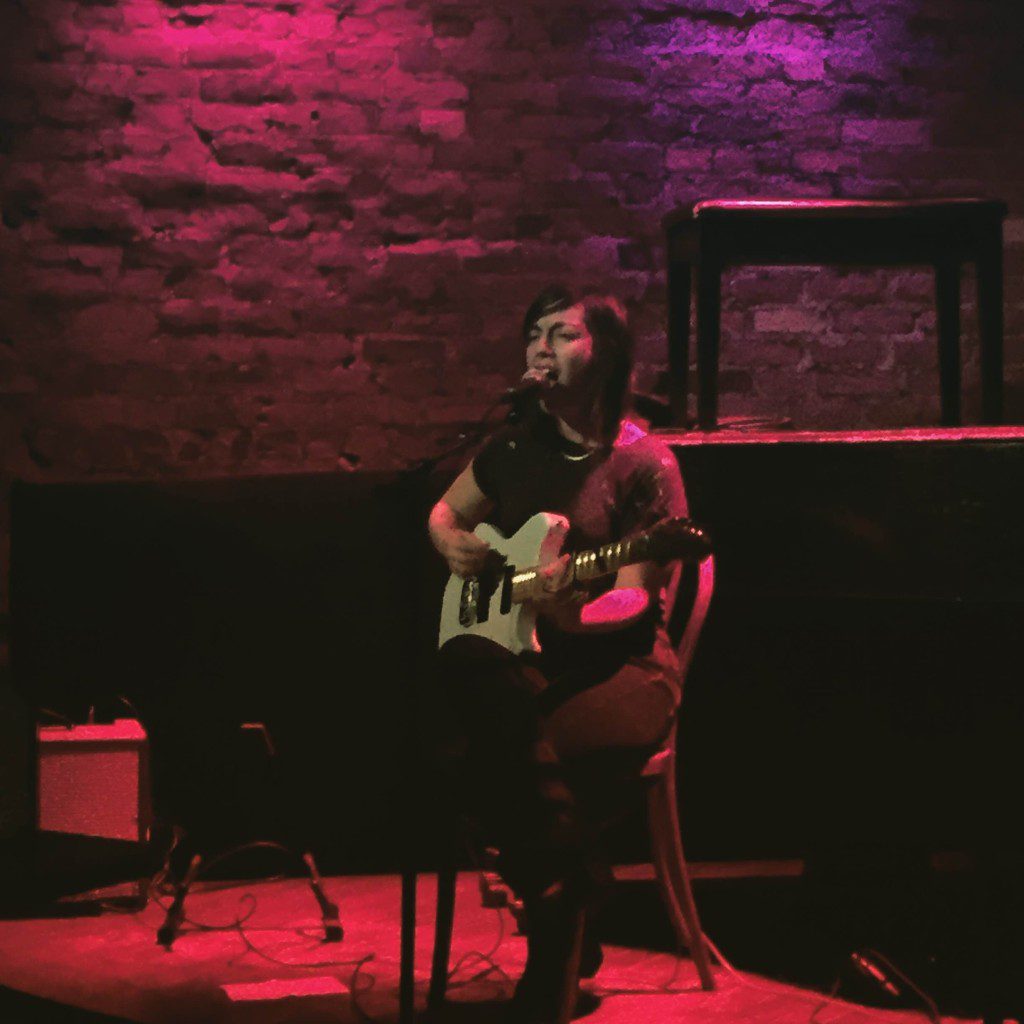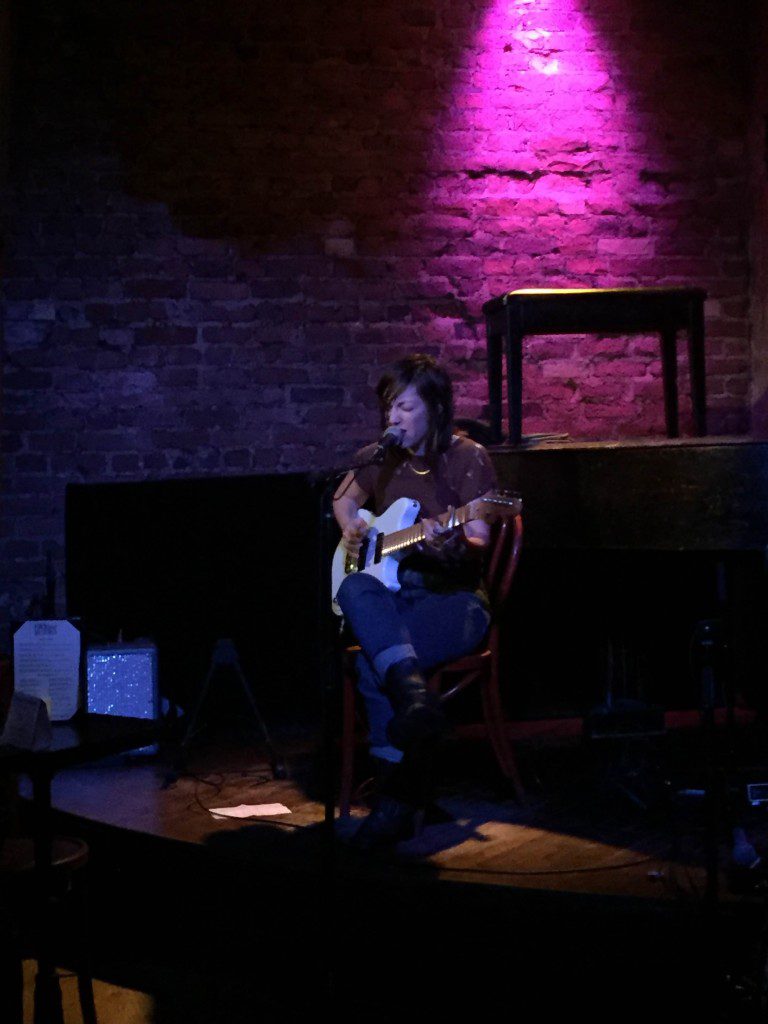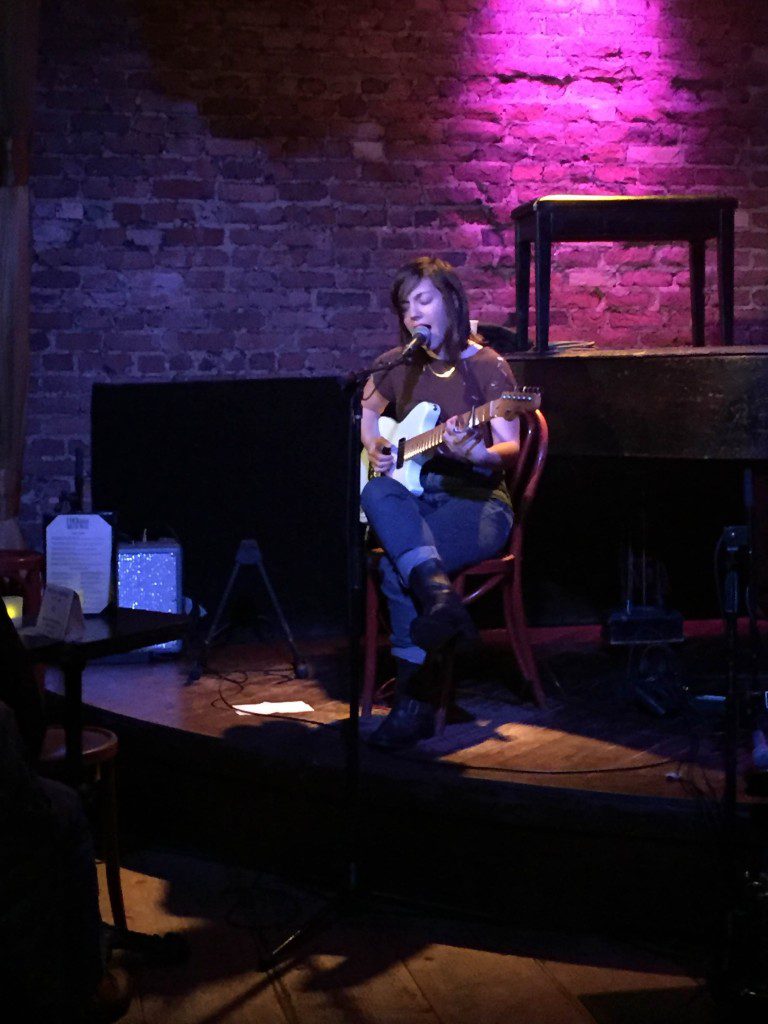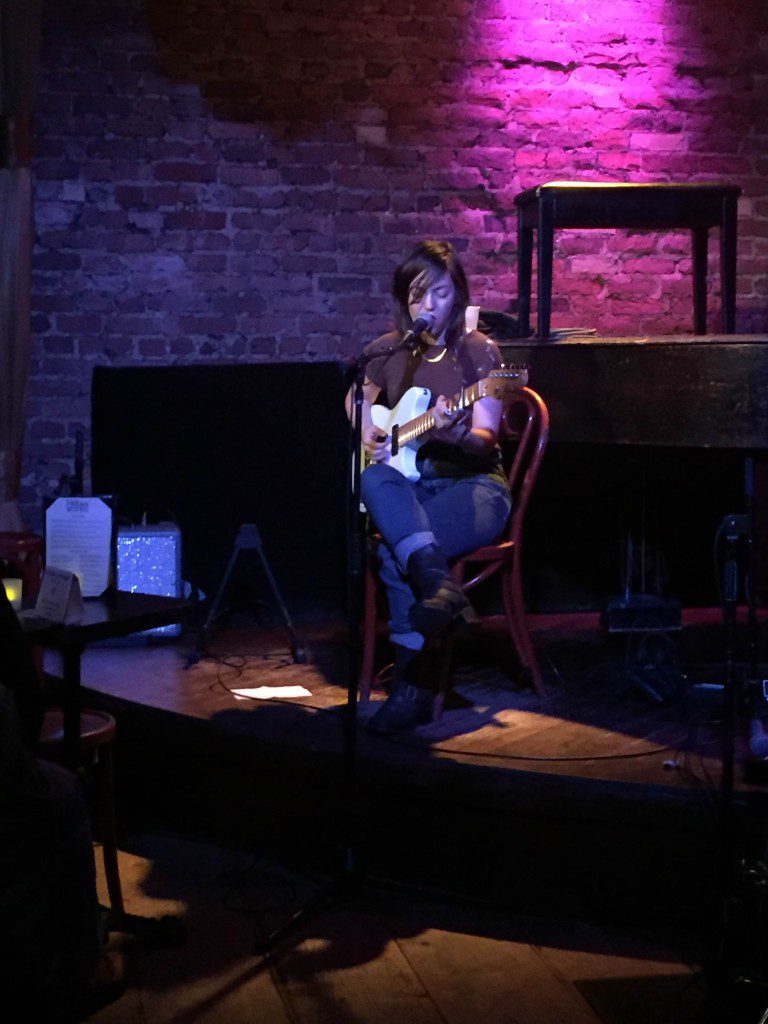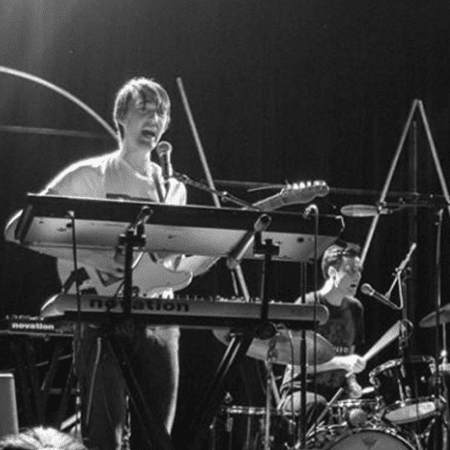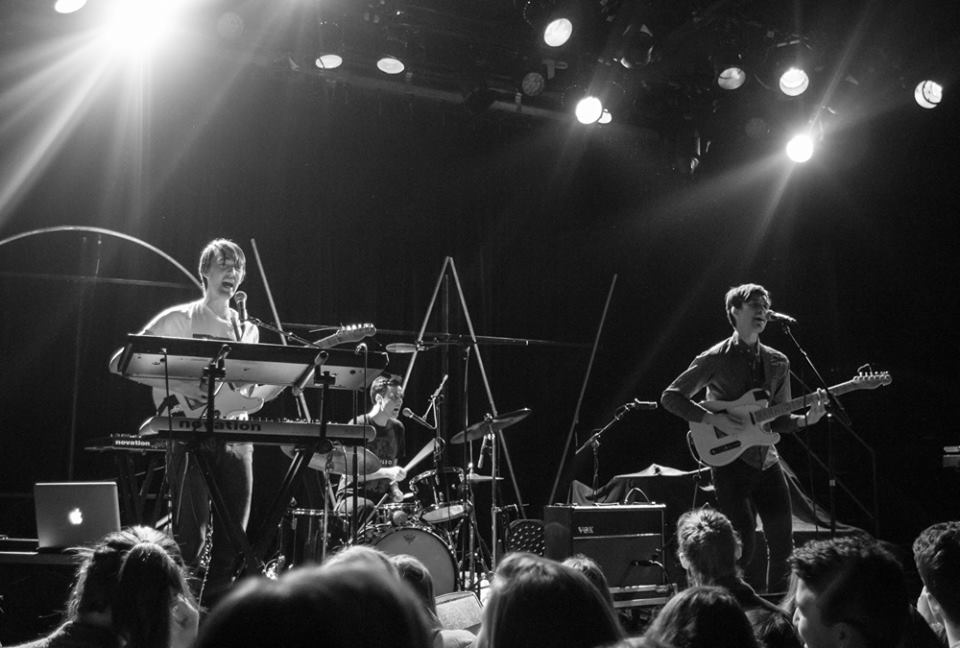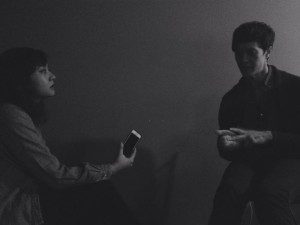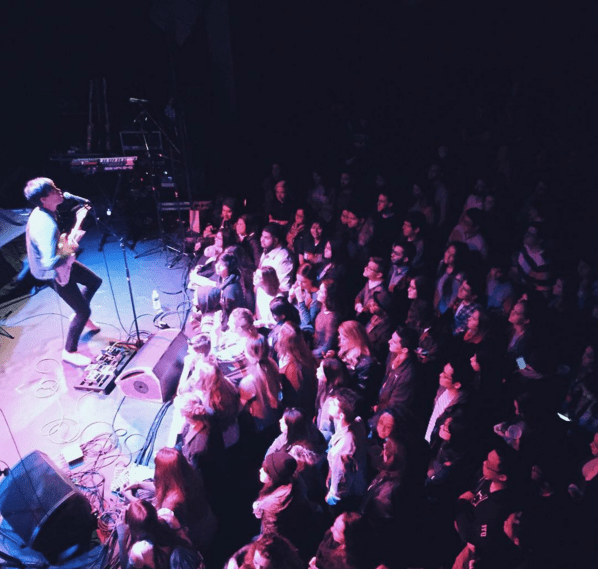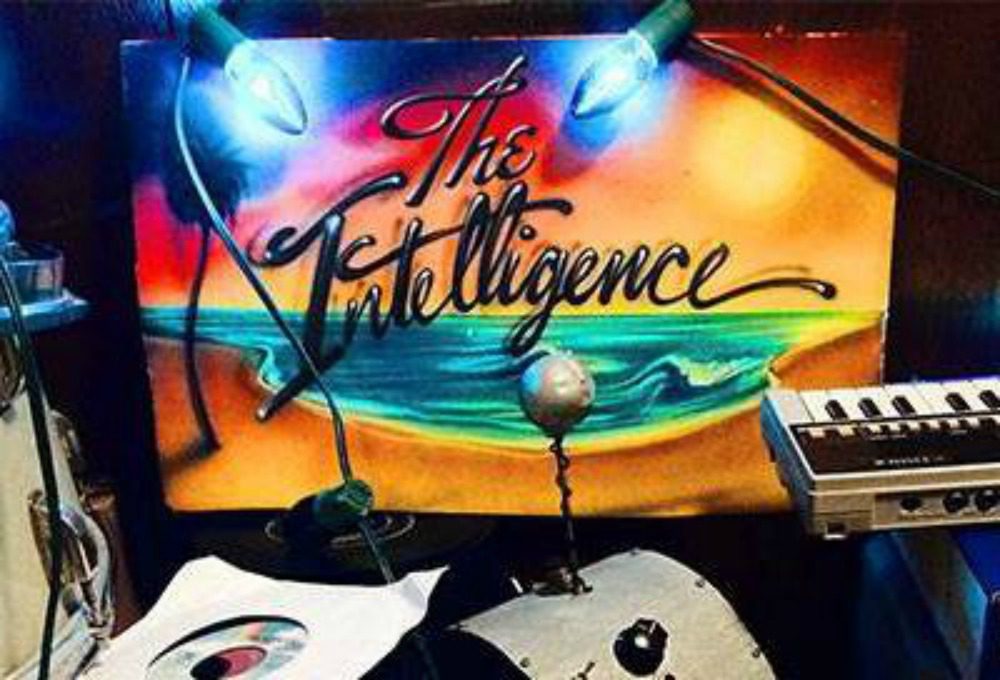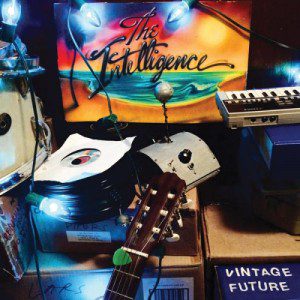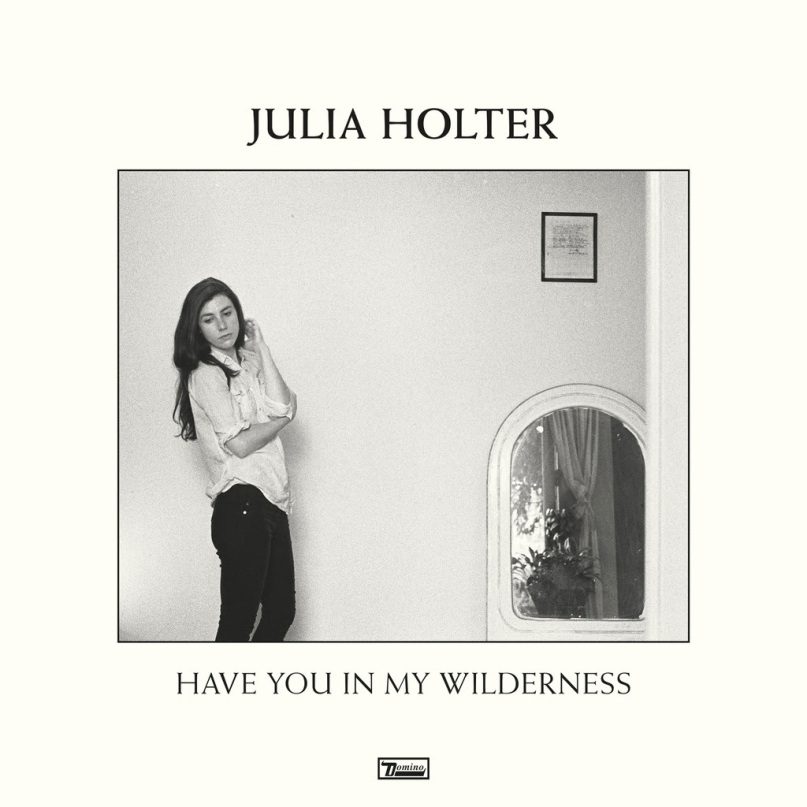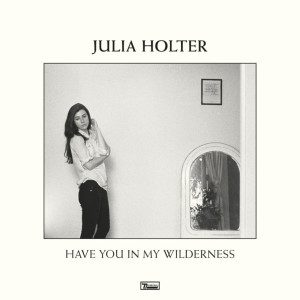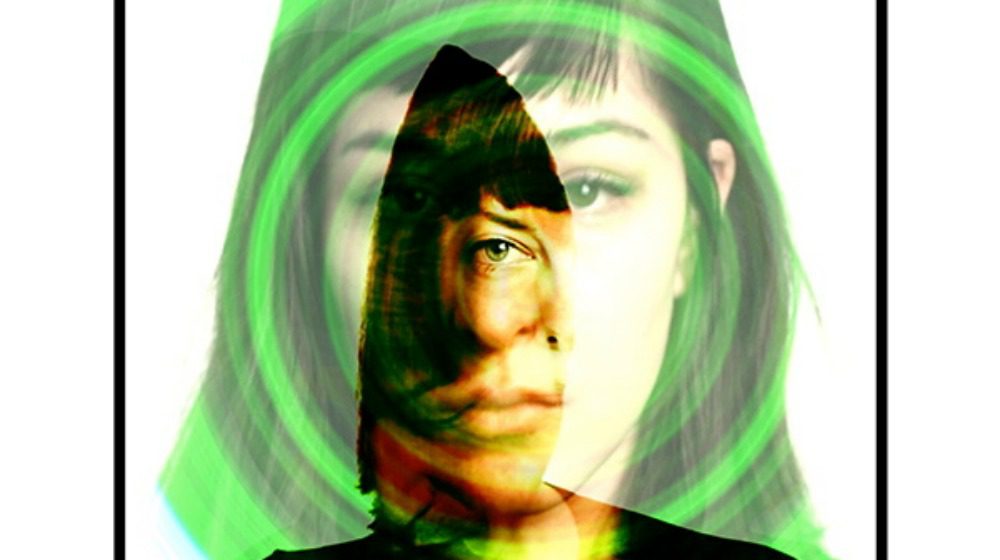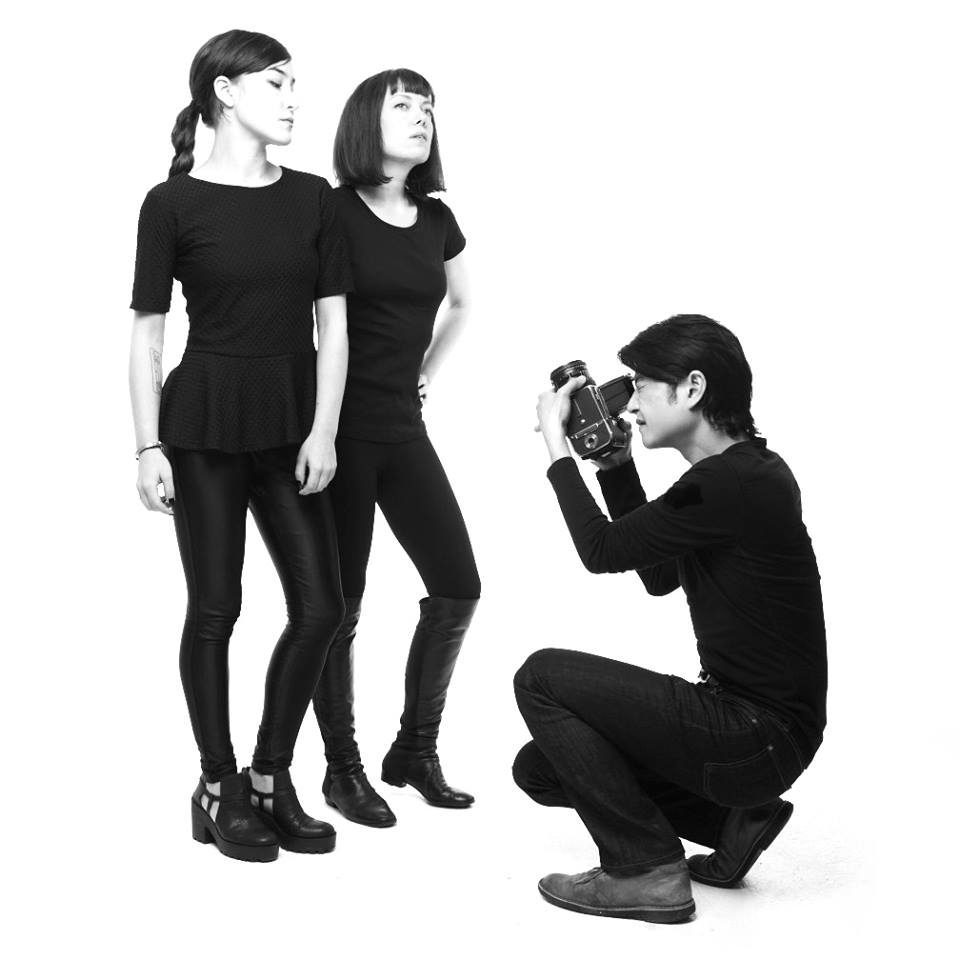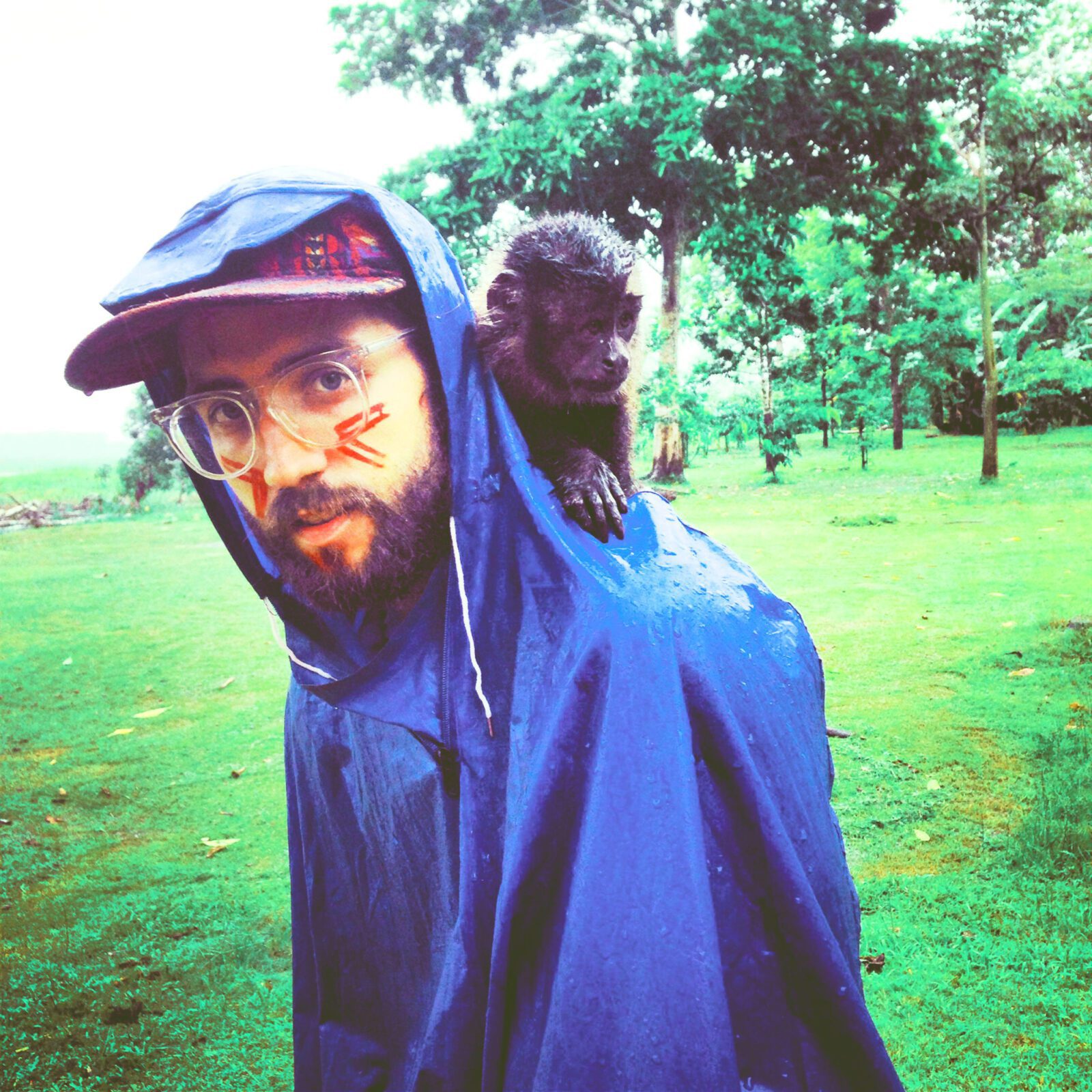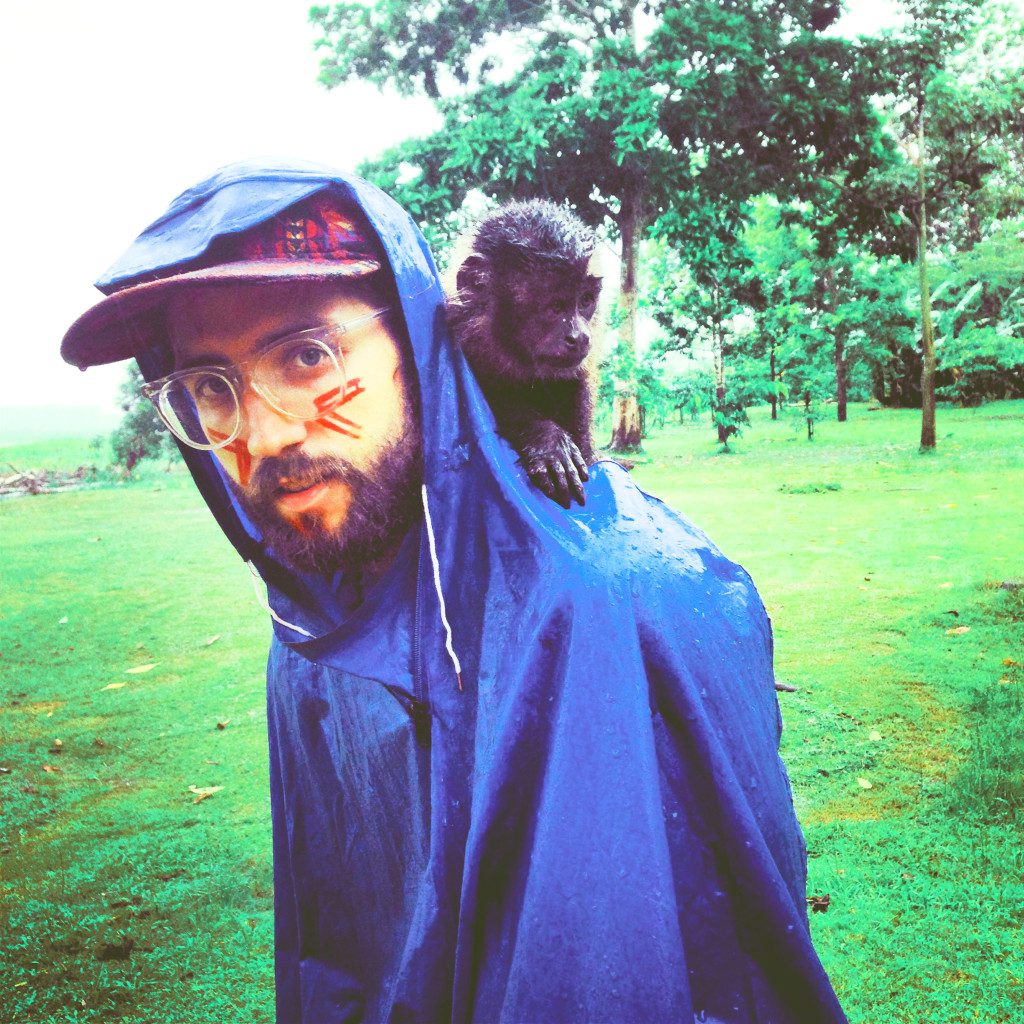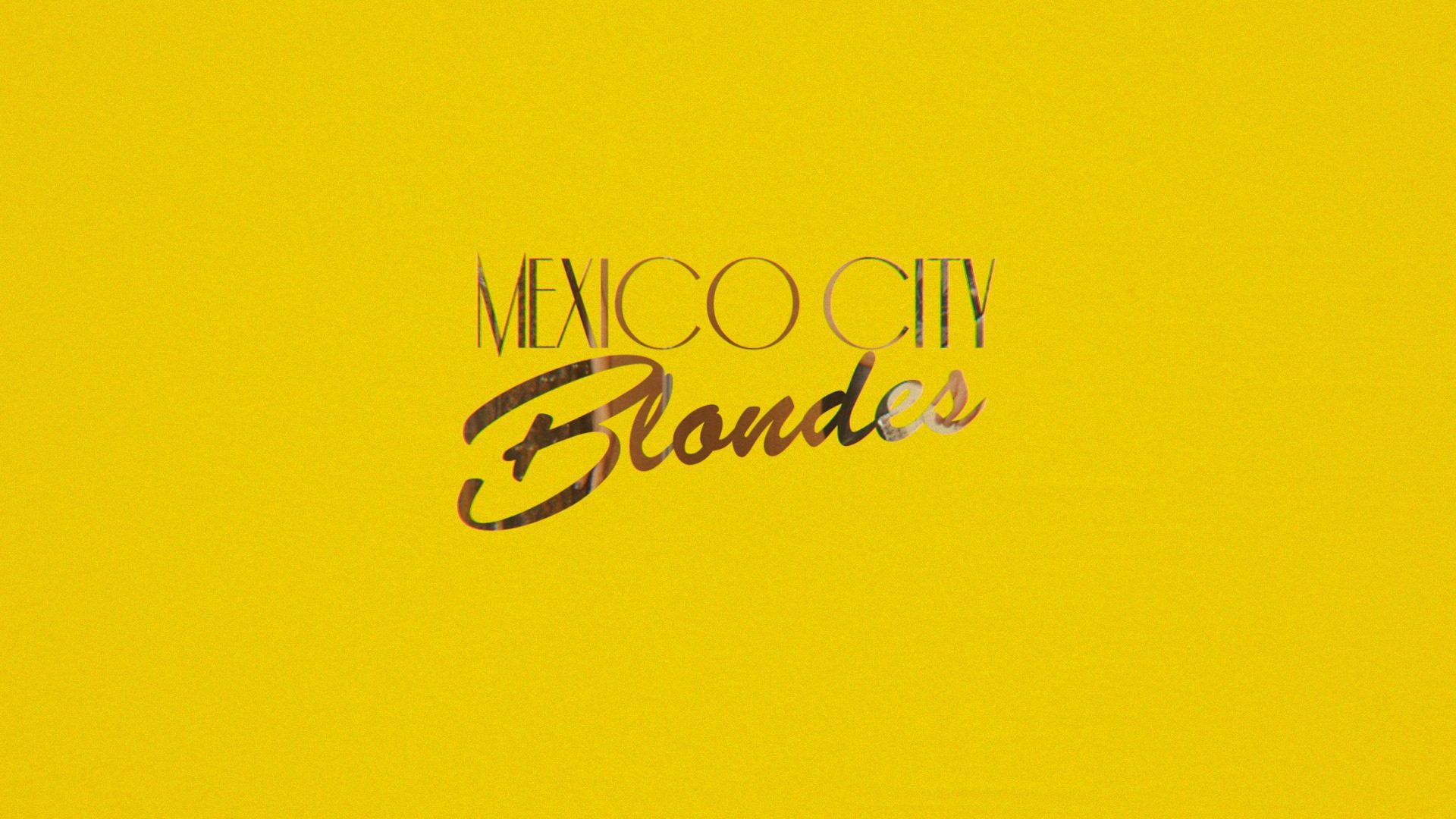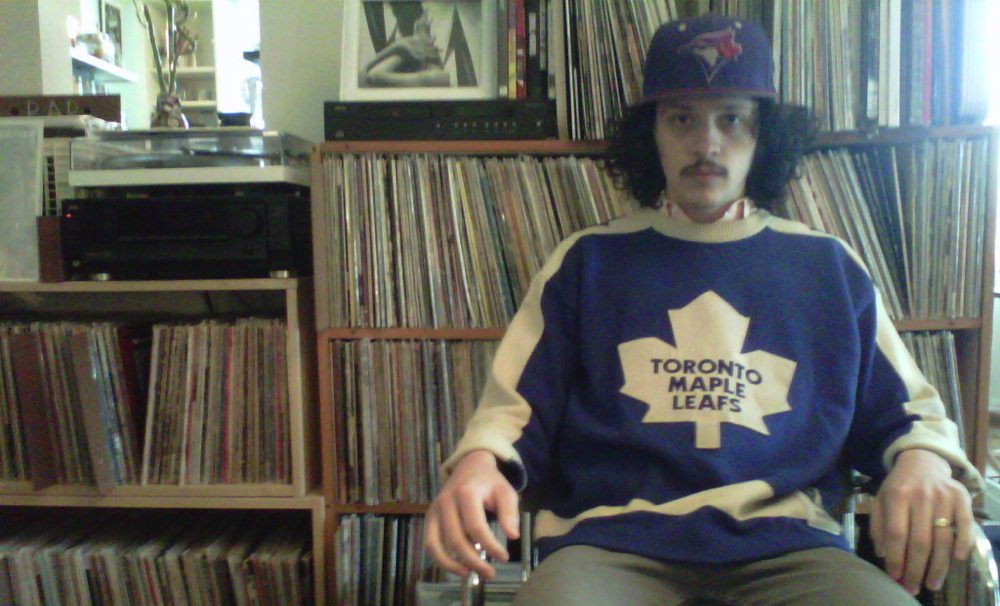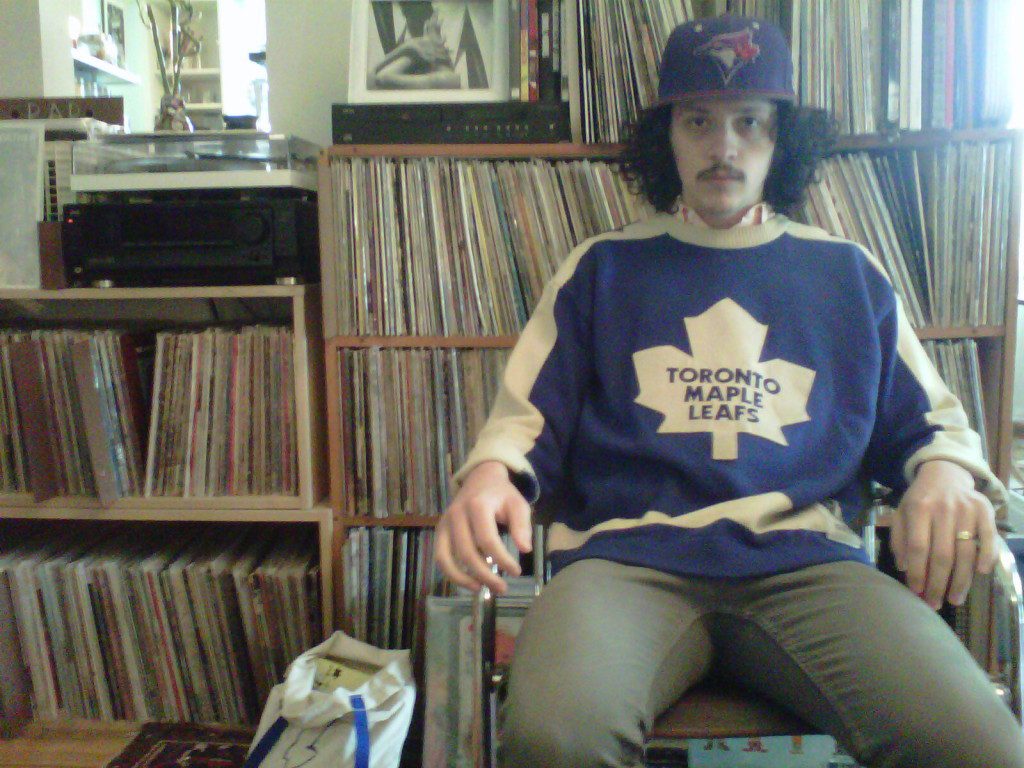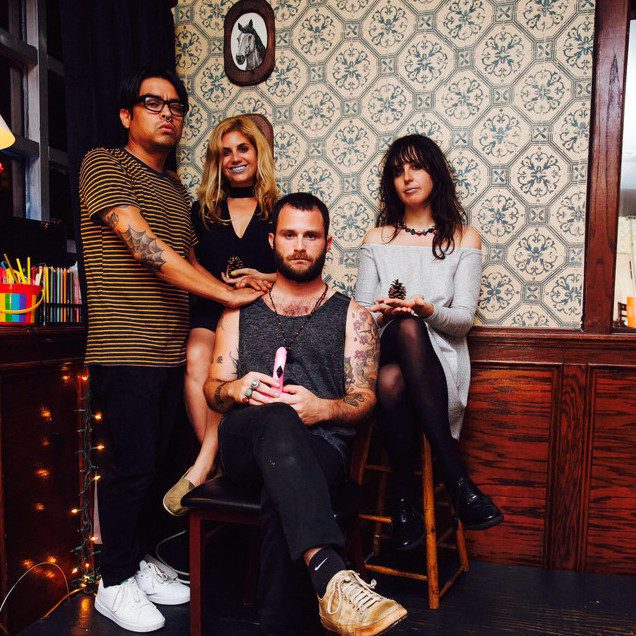
[fusion_builder_container hundred_percent=”yes” overflow=”visible”][fusion_builder_row][fusion_builder_column type=”1_1″ background_position=”left top” background_color=”” border_size=”” border_color=”” border_style=”solid” spacing=”yes” background_image=”” background_repeat=”no-repeat” padding=”” margin_top=”0px” margin_bottom=”0px” class=”” id=”” animation_type=”” animation_speed=”0.3″ animation_direction=”left” hide_on_mobile=”no” center_content=”no” min_height=”none”]
Sharkmuffin have been rocking Brooklyn and beyond for five years now, and plan to commemorate their anniversary with the release of a split EP with their buds The Off White via Little Dickman Records on July 21. Earlier this year, they also put out phenomenal full-length LP “Tsuki”; the record veers through searing rock and roll tunes to more mellow tracks with an underlying darkness.
One of these is “Factory,” and the video reflects that darkness perfectly. It begins in 1904 with guitarist and vocalist Tarra Thiessen and bassist Natalie Kirsch portraying factory girls. In a series of events involving romance and trickery, they become vampire goddesses, turning guitarist Chris Nunez and drummer Drew Adler into vampires as well. Over the course of a century, they have gained more rights and ownership of the factory, meeting with Trump in the present day as he tries to take it over. Without much negotiation, they completely devour him.
Check out the video below and keep scrolling for our interview with Thiessen and Kirch about their latest EP, touring with The Off White, and Vampires vs. Hierarchy.
(Originally premiered via Tidal)
AudioFemme: Who did you work with in the making of the video for “Factory”?
Tarra Thiessen: Eric Durkin shot and edited it, Vramshabouh of The Big Drops and Wild Moon played the first factory owner, Davey Jones of Lost Boy? and The So So Glos played the next victim trying to buy the factory, and Nick Rogers of Holy Tunics and Jordan Bell of GP Strips were also part of our vampire family at the end of the video.
AF: What inspired the message of the video? Do the lyrics also have a political undertone?
TT: I didn’t intend for the lyrics to have any political message while I was writing them. The song tells a story of a very young woman factory worker who falls in love with her boss. The owner of the factory then crosses professional and personal boundaries in the relationship and it gets complicated.
Natalie Kirch: The video’s theme of female factory workers over the ages and the changing power dynamic between male and female factory workers and business owners were inspired by Tarra’s lyrics. At the turn of the 20th century, many women worked in fabric factories. During World War II, it was mostly canned food and ammunition for the troops, so we played into the historical social themes as well. I am also a horror buff, which is where the gimmick on Nosferatu came into play. It allowed us to maintain the same characters but show how dynamics are changing over the eras. Actually, Jordan, Nick and I are in a Horror Book Club together so they seemed like the perfect friends to ask for the part. Once we had come up with the idea of the women switching roles as business owners, Tarra thought the final victim should be Trump – he matched the prototype: business owner, disrespectful of women, etc.
AF: Do you feel Trump is essentially trying put women out of business and dismiss the effort they have put into equal rights movements over the past century? It seems like you’re saying to him: you can’t buy your way out of acknowledging our struggle?
NK: I don’t know if he is even conscious enough of his decisions to be so pointed in them, but he has definitely shown that he believes women are inferior and not worthy of the same rights as men in our society.
TT: It’s really unfortunate and unbelievable that someone who so obviously doesn’t feel women are equal is our president in 2017. It’s a really strange time and we can’t sit around and let him reverse years of equal rights movements in a few tweets.
AF: Why vampires? Does Trump become a vampire himself or do you devour him without a trace? He is the last person that should ever live for eternity.
NK: He is consumed as feed. We ended the video on that note to imply that he was not going to make an appearance as a vampire.
TT: Don’t worry, we don’t want a Trump vampire to deal with for all of eternity either. Originally, we wanted to keep the fact that it was Trump more vague, so that the final victim’s arrogant hand gestures and weird hair piece could represent any human attempting to change how much women’s rights have improved since the turn of the century.
AF: What’s the most difficult aspect of creating a music video?
TT: Keeping everyone on task enough to get all the necessary shots. It’s easy to get side tracked because it’s so much fun filming videos.
NK: Organizing everyone’s schedules and ideas.
AF: Do you feel touring extensively is still an effective way for musicians to promote themselves? Do you see a difference in your audience and surroundings while on the road with Trump as president?
TT: I personally feel like it’s more important now than ever to be a touring musician, because in many different parts of the US it seems they rarely get to see women musicians like us and it can be really empowering for women who feel more vulnerable in today’s political climate. The biggest compliment we can get from anyone who comes out to see us play is that we inspired them to want to play music and/or start a band.
NK: Absolutely. Especially if you are a band who puts on a strong live act, it encourages more people to develop an interest in your music. It is usually clear what area of the states we are in by the responses and comments we get in different areas. Men will often comment on how they have never seen a “girl shred like Tarra” or how it’s surprising I can play “such a big bass for such a little girl.” However, I don’t think any die-hard Trump fans would be showing up for a Sharkmuffin set.
AF: How was hitting the road with The Off White? When and why did you guys decide to come together for a split EP?
NK: We love those boys so much. They are tons of fun to hang out with and extremely talented musicians. I never get bored of their music; it totally rocks and they put on a killer live set.
TT: They’re so much fun! I think we had been thinking of doing a split together since the fall and finally got enough material together to make it happen.
Sharkmuffin is on tour again in August; check out the dates below and catch a killer show in your area!
8/11 @ Brooklyn Bazaar w/ Hanks Cupcakes
8/12 @ Porta Pizza, Jersey City, NJ w/ The Big Drops
8/16 @ The Meatlocker, Montclair, NJ~
8/19 @ Mad Liberation Fest, Hammington, NJ~
8/20 TBA, Ashville, NC
8/22 @ Snug Harbor, Charlotte, NC~
8/23 @ TBA, Nashville, TN~
8/24 @ Best Friend Bar, Lexington, KY~
8/25 @ Jurassic Park, Chicago IL~
8/26 @ Milkies, Buffalo, NY~
~= w/ Wild Moon[/fusion_builder_column][/fusion_builder_row][/fusion_builder_container]

